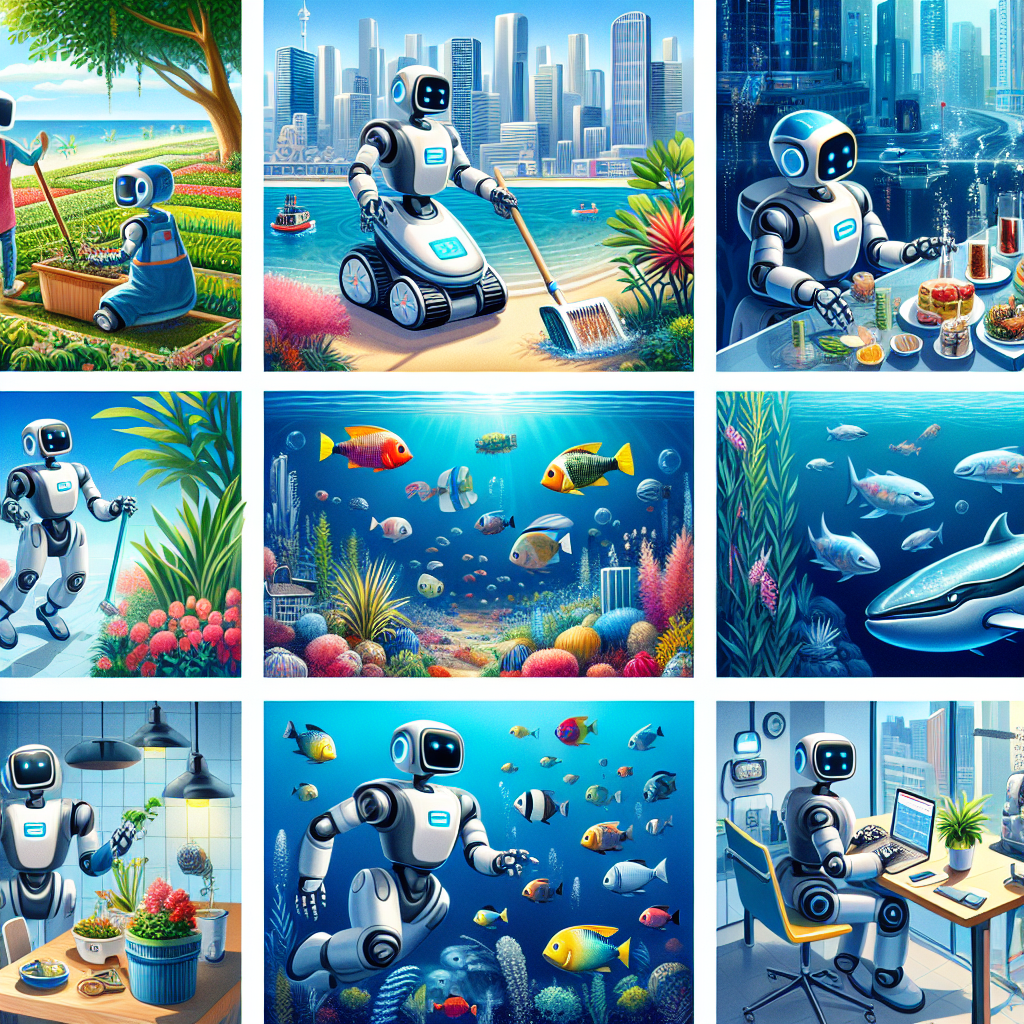Navigating the Maze of AI in News, Education, and Beyond: An Exhilarating Exploration
In the ever-twisting saga of artificial intelligence (AI), the end of the week brings a smorgasbord of robot-related narratives that range from the comical to the concerning, all of which shape our increasingly digital world in profound ways. As we peel back the layers of AI's integration into our news feeds, educational systems, and even our perceptions of reality, it's clear we're riding a technological rollercoaster—without a safety harness. So, buckle up as we dive into an analysis that's as zesty as a lemon twist in your favorite summertime cocktail.
The AI-Generated News Debacle: A Tangled Web of Trust
In the realm of news, AI has thrown us a curveball that's as deceptive as a well-executed knuckleball. The revelation that Google News, a titan in the digital information sphere, has been unwittingly promoting AI-generated articles is cause for both uproar and introspection. This debacle illuminates the tech giant's struggle to sift through the deluge of digital content, struggling to distinguish between genuine journalism and fabricated fluff. It's a digital Wild West out there, and it seems the sheriffs might be asleep at the wheel.
The implications of this are as profound as they are unsettling. Trust in digital news sources, already hanging by a thread, faces a new threat—not from biased human reporters, but from soulless algorithms churning out content with reckless abandon. This raises a pivotal question: in an age where information is both weapon and currency, how do we safeguard the truth?
Highly relevant background information can be found on issues of AI in the news industry.
The Educational Conundrum: AI's Double-Edged Sword
Education stands on the precipice of a revolution, with AI playing the role of both liberator and conqueror. Google's DeepMind, a beacon of progress, demonstrates AI's potential to democratize learning by solving complex geometry problems that would leave many of us scratching our heads. The integration of AI into educational institutions, as witnessed in the pioneering partnership between OpenAI and Arizona State University, hint at a future where learning is personalized, efficient, and boundless. Yet, this glittering promise is not without its shadows.
The rapid deployment of AI in education raises existential questions about the future of human educators. As AI begins to shoulder more responsibilities, from grading papers to devising lesson plans, the role of the teacher is undeniably transformed, if not marginalized. This technological tidal wave may enhance learning experiences but at the cost of devaluing human connection and insight, elements that are the very soul of education.
The Legal Labyrinth of AI Liability
In a twist that reads like a script from a legal thriller, OpenAI finds itself in the legal crosshairs over its AI's propensity to generate defamatory content. This saga unfurls a complex tapestry of ethical and legal dilemmas surrounding AI's role in society. As these digital entities gain autonomy, the lines blur between tool and agent, prompting us to reconsider the very nature of liability and responsibility in the digital age.
The confrontation with OpenAI is a harbinger of battles to come, where the realms of technology, law, and ethics collide. It begs the question: how do we regulate entities that evolve faster than our laws, and whose actions can have unforeseen impacts on individuals' lives?
For more insights on the legal challenges posed by AI, click here.
AI in Our Personal Lives: The Uncanny Valley of Digital Companionship
The emergence of AI-generated influencers and virtual companions marks a new frontier in our relationship with technology. Formula E's controversial decision to fire its AI-generated influencer after public backlash is a stark reminder of the fine line between innovation and alienation. This incident underscores a broader societal tension as we grapple with the creeping influence of artificial entities in our lives. While the prospect of digital companionship might offer solace to some, it also raises profound questions about the nature of human connection in an age of manufactured affections.
The Future of Work: An AI Odyssey
The specter of AI-induced job displacement looms large, with projections suggesting that a staggering 60% of jobs in advanced economies could be impacted. The narrative of AI as a job creator is increasingly overshadowed by the reality of AI as a job displacer. This looming crisis demands a reimagining of work, education, and social safety nets. As we stand on the cusp of this seismic shift, the choices we make today will echo through generations, shaping the future of work and society in ways we're only beginning to understand.
Learn more about AI's impact on employment.
In the whirlwind tour of AI's presence and influence across various facets of society, we've only scratched the surface. From the digital deceit in our news feeds to the legal quandaries of AI-generated content, the challenges are as multifaceted as they are urgent. As we navigate the exhilarating yet treacherous landscape of artificial intelligence, one thing is clear: the path ahead is as uncertain as it is uncharted. Yet, in this uncertainty lies the opportunity—for innovation, for ethical leadership, and for a future where technology amplifies, rather than diminishes, our humanity.
